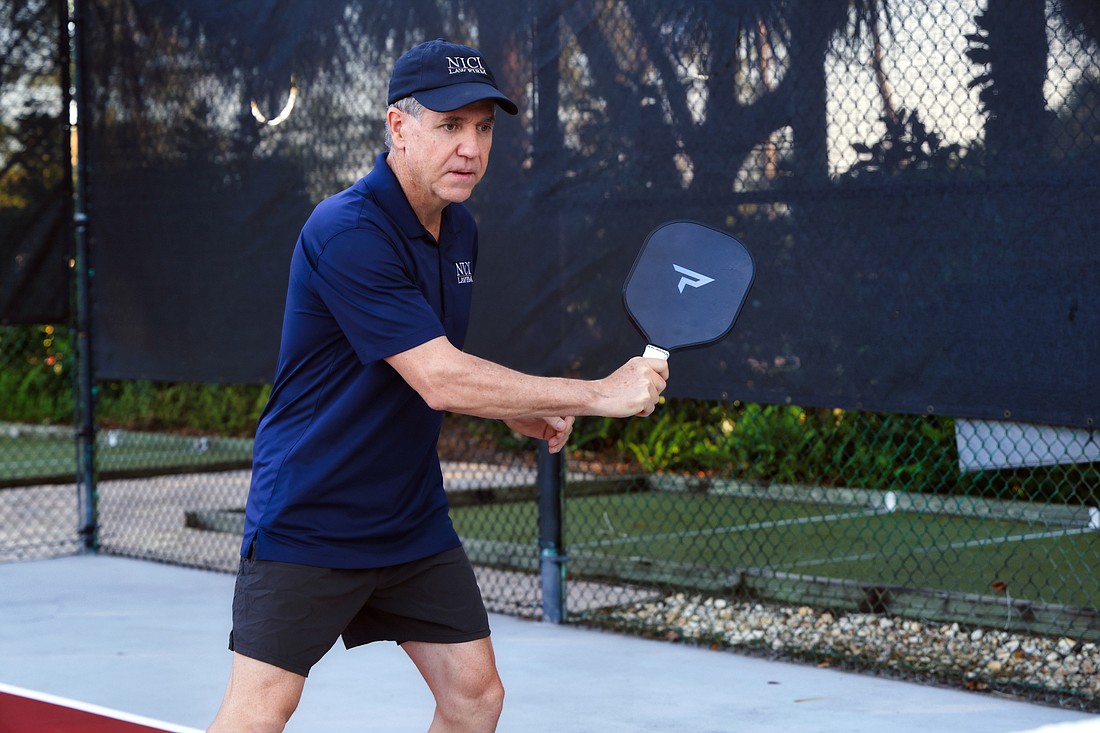- December 15, 2025
-
-
Loading

Loading

Executive: Jim Nici, 54, a Naples attorney and businessowner who specializes in estate planning and tax law. A graduate of Stetson University College of Law, Nici has practiced law for 27 years and owns and operates Nici Law Firm. He is board certified in wills, trusts and estates.
Diversion: Pickleball. Nici is one of the millions of people who’ve helped pickleball become America's fastest-growing sport over the past decade. His first exposure to it came in late 2015, when a client mentioned he’d been playing pickleball at a country club in Bonita Springs.
“I said, ‘What’s pickleball?’ and he said, ‘Come up to my club and I’ll show you.’” A few months later, in spring 2016, Nici attended the inaugural U.S. Open Pickleball Championships in Naples, as a spectator — but the excitement of watching was enough. “I was hooked,” he says. “I bought a pickleball machine and started practicing. And that was it!”